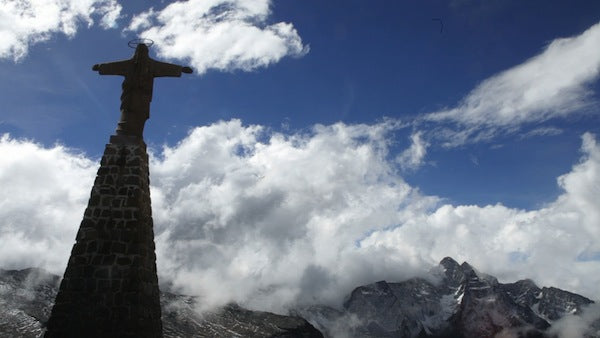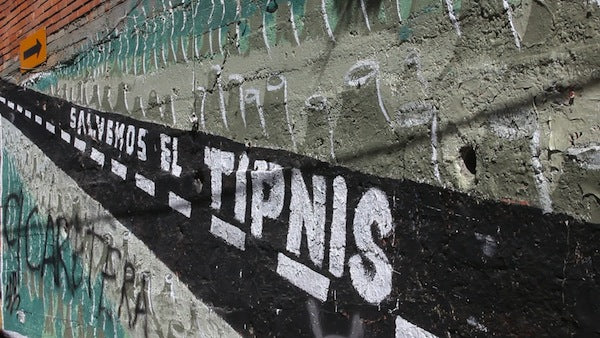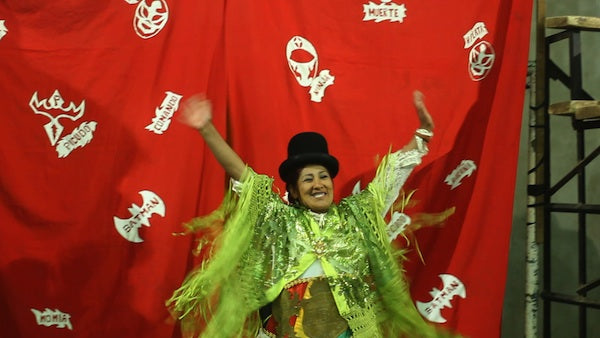
Trip Report: Bolivia dos Caras
This is an updated post that was originally posted July 19th, 2013.
I was working a bar shift at our cafe, PT’s at College Hill, when Jeff and Maritza told me that I would be taking my first farm trip. It was exciting, and I only had six weeks to prepare. As I began my research on Bolivia I began to realize this journey was going to be a study in contrasts. The geography and climate looked to serve as a perfect illustration of the extremes we would encounter on my inaugural trip to origin. In the Yungas Valley, between Caranavi and Coroico, we visited our Direct Trade partner farms. Even at the beginning of July (the middle of the Bolivian winter) the weather was moderate and I understand why it is such an ideal region for growing coffee. During the day the sun is strong, the air is not too dry, and the temperature is pleasant in the lower 80’s. At night, the humidity rises and temperature falls into the lower 60’s—perfect.

As we left the tropics of Coroico to travel up the Old Yungas Road to La Paz, the weather changed dramatically with every passing mile. I could see why the old “El Camino de la Muerta” was such an attraction to bicycling tourists. As we rode towards the capital we pulled over numerous times to let groups of gravity-assisted mountain bikers pass by as they coasted the descent of over 11,000 feet. Less than four hours later we came to the end of the road at La Cumbre Pass, just outside of La Paz. We stopped there to experience a gathering at the statue of Christ and watch the cholitas bury potatoes to freeze at the small, shallow lake. These potatoes are later sold in the famous market in La Paz. In a matter of a few hours we went from a rainforest to a mountain lake with freezing temperatures. This was also my first and only experience of altitude sickness. Although we had been in Bolivia for a week I was not prepared for the rarefied air of 15,000 feet (3 times the altitude of Denver), especially coming directly from Coroico at 3900 feet.

Once we were in La Paz it was time to take in the experience of the Bolivian capital. Just as anywhere else in the world the rural and urban lifestyles are quite different from each other. Still, deep in the heart of the city, there is a connection to the land around it. We walked through that famous weekend market, the largest open market I’ve ever seen. Here farmers, ranchers, and artisans bring their goods to sell to a population waiting for fresh and handmade goods. This is, after all, the country that rejected McDonald’s.
The city also illustrated the economic and cultural divides that trouble Bolivia. With a majority-indigenous population recently electing the first indigenous president of Bolivia, there is still a struggle to gain representation. As we walked through one of the main plazas, we passed by a permanent tent city where protesters set up camp after making the 580 km march to save the TIPNIS, an ancestral home to many of the indigenous, from the construction of a large highway.

This demonstration of strength was echoed as we traveled up to El Alto to see the fighting cholitas with one of our 2013 Direct Trade partners, René Viadez of Finca Senda Salvaje. Here, women fight alongside men in a display of equality and self-confidence while wearing their traditional garb. We had the opportunity to talk to the Champion Belt holder, Jenifer Dos Caras. She, like the rest of the women fighters, is a true indigenous cholita. During the week she supports her family as a nurse at one of the local hospitals. On Sundays, she delights and riles the consistently sold out crowds as one of the Titans of the Ring’s favorite characters. At all times she is a proud mother.

Dos Caras, of course, means Two-Faced, and Jenifer told us that she enjoys the flexibility of being able to play both “Good” and “Evil” characters in the ring. She often hears from fans about how they are uplifted and inspired to see her perform as such a powerful figure in the fights. We adopted the name Dos Caras for our Bolivian coffees in honor of Jenifer and the strength the indigenous people of Bolivia she represents. It also reflects the many faces of the farmers who produce the coffees Bolivia we offer. During this trip, we were delighted by how many coffees scored well on our cupping table and while we couldn’t buy a large amount from all of them, we did want to bring back as many of them as we could. To make this possible, we decided to create Dos Caras as a way to offer each farmer’s coffee, with each one getting their turn in our roaster.
~ Autumn Eaken
eCommerce
